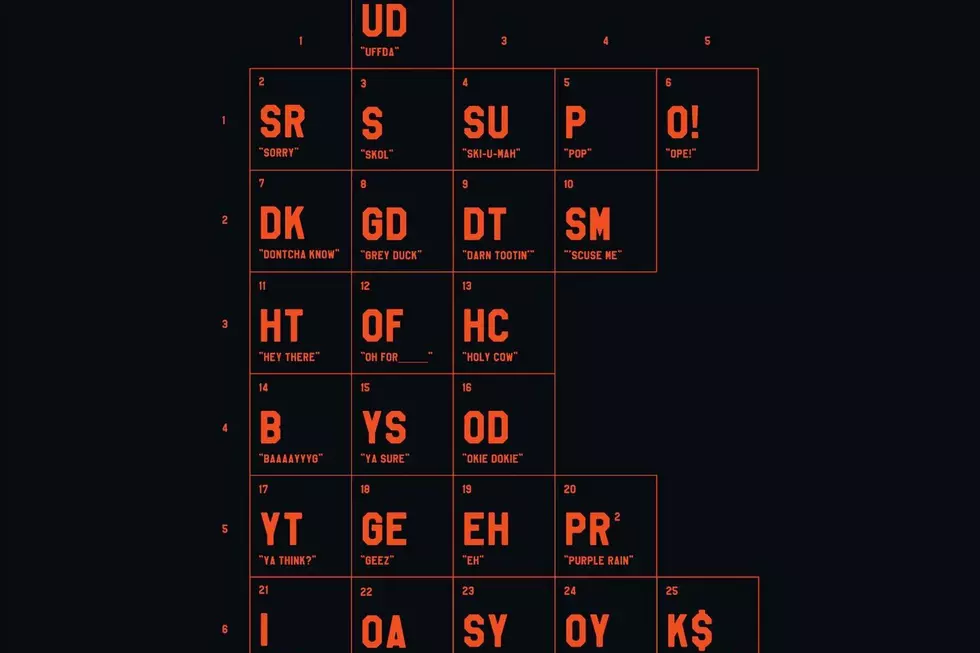
MN Artist Claims She Used Neuroscience to Get Over Her Ex
In a new video by NPR, Minnesota rapper/artist Dessa shares how she used neuroscience to get over her ex-boyfriend.
Breakups are never easy. Most of us know it takes things like time, distance and friendships to move on from someone.
But for Minneapolis-based Dessa, those weren't enough.
"You're not only suffering," MPR News quotes her as saying, "You're just sort of ridiculous. Discipline and dedication are my strong suits -- it really bothered me that, no matter how much effort I tried to expend in trying to solve this problem, I was stuck."
Then, one day, she came across a TED Talk by biological anthropologist Helen Fisher who determined that you can "objectively measure and observe 'love.'" Fisher and her colleagues had put 37 people who were "madly in love" into a "functional MRI brainscanner" to figure out which parts of the brain are involved in romantic love.
Dessa wondered: If science can map the source of love in the brain, can it make the same love go away?
She turned to social media, bargaining backstage access to a show and whisky for an fMRI machine. Someone from the University of MN took her up on it, and they scanned her brain while looking at a photo of her ex-boyfriend and a platonic acquaintance. When looking at the photo of the platonic acquaintance, nothing happened; but when she looked at the photo of her ex, her VTA (ventral tegmental area) lit up.
Now that she knew the source of romantic love in the brain could be detected, Dessa turned to a controversial therapy technique called neurofeedback to do something about it. In one form of neurofeedback, a person sees a visual of their own brain waves in the form of cues like colors and audible dings. The idea, reports MPR News, is that people then retrain their brainwaves to "turn down unwanted brain activity or turning up regions that are too quiet." This form of therapy has been used to treat various forms of mental health conditions including anxiety, depression, autism, and ADHD.
Following several neurofeedback sessions, Dessa went back for another MRI and found that -- when shown a photo of her ex-boyfriend -- her VTA had "gone quiet."
It was exciting to see this dramatic change really fast in my brain that was evidenced by a marked change, subjectively, meaning I felt different.
And when she saw her ex in person again?
Before, I felt that I was really under the thumb of a fixation and a compulsion. And now it feels like those feelings have been scaled down."
Believe it or not, Dessa doesn't claim that neuroscience can fix a broken heart; instead, she affirms that while it might work for some, it might not work for others.
Watch Dessa's interview with NPR's Skunk Bear below:
Know what else can fix heartbreak? Stupid videos from Mix 94.9 (trust us, it works)!
More From Mix 94.9









